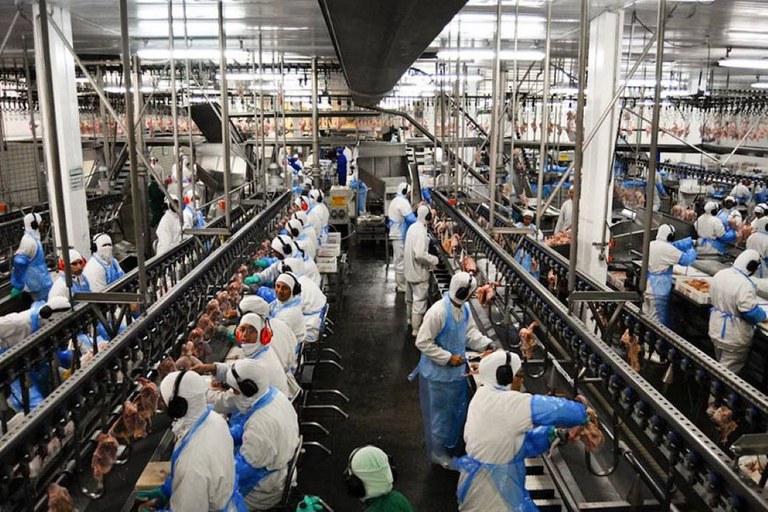Notícias
BRAZIL EXPORTS
The number of Brazilian meat plants that can export to China rises to 146

An additional 38 Brazilian meat plants have been cleared for exporting to China - Credit: Agência Senado
In the year commemorating Brazil's 50 years of diplomatic relations with China, an additional 38 Brazilian meat processing plants have received clearance to export meat and meat products to the Asian nation. This announcement was communicated by China's General Administration of Customs (GACC) to the Ministry of Agriculture, Livestock and Food Supply (MAPA) on Tuesday, March 12, 2024.
A total of 38 clearances were granted, comprising eight chicken and 24 livestock slaughterhouses, one bovine processing facility, and five warehouses, among these one is for bovine, three for chicken, and one for pork. That is a milestone in China's trade relations.
Some of the processing facilities underwent remote auditing in January of this year, while others received on-site evaluations in December last year. Chinese technical teams were received and accompanied by representatives from the Ministry of Agriculture, Livestock and Food Supply (MAPA).
"This is a significant moment for both sides. China will receive high-quality meats at competitive prices, ensuring agricultural products for its population, while Brazil gains the certainty of job creation, opportunities, and the growth of the Brazilian economy. It's a historic day in the Brazil-China trade relationship, a historic day for our agriculture”, stated Carlos Fávaro, Minister of Agriculture, Livestock and Food Supply (MAPA).
In a video released with President Lula, Fávaro celebrated the opening of 96 new markets for Brazilian agricultural products since the beginning of the current term. Among these new countries, 39 were not previously part of Brazil's list of trading partners.
Mais uma boa notícia para o Brasil, fruto da retomada das boas relações com o mundo. Mais 38 frigoríficos brasileiros já podem exportar carnes para a China. Um dia histórico na relação comercial Brasil-China e também para o agronegócio do nosso país. Já abrimos 96 novos mercados… pic.twitter.com/6i92WA2KxC
— Lula (@LulaOficial) March 12, 2024
China stands as the foremost destination for Brazilian exports of beef, pork, and poultry, emerging as the largest trading partner for animal protein. In 2023, the Asian nation imported 2.2 million tons of meat from Brazil, totaling over $8.2 billion worth in value.
The Secretary of Trade and ForeignAffairs, Roberto Perosa, stated that the decision to release processing plants for export is taken by the Chinese government and that, therefore, it is the responsibility of the Ministry of Agriculture, Livestock and Food Supply (MAPA) to gather the necessary requirements in Brazil and inform the buying country of the list of plants available for their validation.
"This is the largest number of licenses granted at one time in history. It is important to highlight the efforts of Minister Carlos Fávaro involving negotiations, as well as those of the Ministry of Foreign Affairs and our agricultural attachés at the Brazilian Embassy in China. We will continue working to expand the list of exporting facilities”, emphasized Perosa.
"This historic achievement once again demonstrates the recognition of the quality, credibility, and trust in Brazil's agricultural defense work”, emphasized Carlos Goulart, Secretary of Agricultural Defense.
As of early March, this year, Brazil had 106 plants cleared for export to China, including 47 for poultry, 41 for beef, 17 for pork, and 1 for donkey meat.
END OF ANTIDUMPING - Recently, following the efforts of the Brazilian government, China notified Brazil of the non-renewal of the antidumping measure that had been applied to Brazilian chicken exports since 2019. This measure, which imposed a surcharge ranging from 17.8% to 34.2% depending on the exporting company, ceased to be in effect on February 17, 2024.
Following the end of that measure, Brazilian chicken exports have gained increased competitiveness in the Chinese market, opening up opportunities for other Brazilian producers as well. Previously, despite having cleared meat processing plants, producers faced challenges in competing effectively due to the imposition of antidumping duties.

